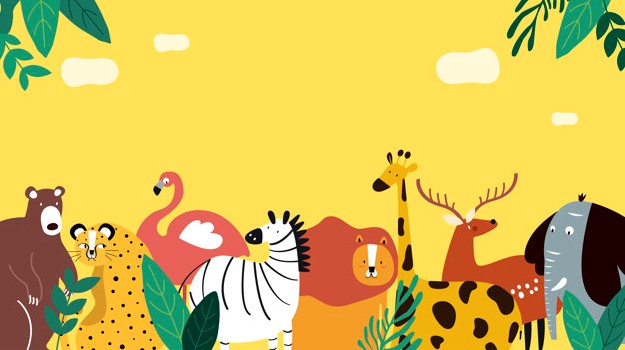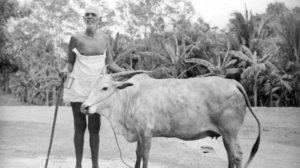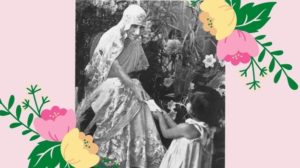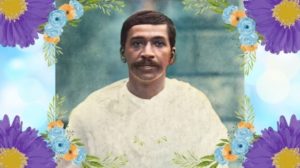Both the ancient as well as the modern Rishis of India, have been known for their tremendous love and compassion for animals. In the forest ashrams of the ancient sages in particular, wild animals roamed freely and lived in harmony with humans. Before the magnanimous and love-filled hearts of God-realized Rishis, ferocious animals like tigers and bears lost their hostility and became utterly calm and docile.
This attitude of love and acceptance of our Rishi’s however stands in sharp contrast to the emotions of fear, cruelty and hostility that are increasingly dominating the minds of city dwellers of India in particular. Living in structures that rise higher and higher from the ground and farther and farther away from the lap of Mother Nature, many people have become so emotionally detached from animals that they no longer retain even a common-sense knowledge of a street animal’s (such as a dog or a cat’s), behaviour and food habits.
And so instead of understanding animals, instead of valuing their varied roles in sustaining the health of the environment, and instead of connecting with the spiritual truth that animals are simply an extension of our own consciousness (for it is our own soul that is present in them), and that they too are fellow-travelers on the road to Self-Realization – instead of all this, we have come to look at them from an unnecessarily fearful, selfish and utilitarian point of view.
“This animal will harm me. What use is its existence? Might as well shoo it away or kill it.” These are the dominant thoughts. As a result of this ignorance and lack of empathy, not only are cows, buffaloes, stray dogs, cats, snakes and other species suffering from a rise in cruelty, but we too are suffering from the push we have given ourselves into the darkness of a lower consciousness by severing our inner soul-connection with Mother Nature. Our campaigns to save the environment, or to save the trees all sound incredibly hollow because they are not accompanied by any change in our consciousness towards animals who form a vital part of the environment.
So how must a spiritually inclined person view animals? What is the compassionate view point to develop? A light in this direction has been cast by Amal Kiran, a direct disciple of the God-realized sages Mother Mirra and Sri Aurobindo, who has documented their perspective on animals. Enclosed are two excerpts from his must-read book: Our Light & Delight.

– Mother Mirra, Sri Aurobindo Ashram
Animals Are “Persons” With Rights
Mother Mirra was known for her love of animals and her deep understanding of their nature. It was a delight to hear her speaking to a cat in a musical tone full of affection, a tenderly modulated baby-talk. She dealt with the Ashram cats as if they had been “persons” with rights.
The man who was in charge of the Prosperity Room in the thirties was given strict orders not to interfere with the movements of the beautiful female cat Bite-Bite which had made this place its home.
If a cupboard was left open by him and Bite-Bite got on to any shelf of it, he had to respect its right to be there: not only was he forbidden to shoo if off but he had also to let it commit nuisance there if it wanted. His job was to develop his own consciousness and remember always to shut the cupboards. Else he should bear with equanimity the catty consequences of his own oversight.
Sri Aurobindo too is known to have dealt with animals. During the years of his association with the Mother he came most into touch with cats. Once Purani found him busy arranging a plate of fish for some cat of the Mother’s. It is said that if a cat came and sat on Sri Aurobindo’s chair he would not allow anyone to disturb it. When the cat Big Boy was about to die, Sri Aurobindo came down from his room and kept caressing it with his right hand.
Source: Our Light and Delight.
The Power God-Realized Sages Command Over the Minds of Animals
The Mother has recorded many reminiscences of her dealings with cats. How powerful the Mother’s influence could be, was borne in on me when she acted on a semi-wild female cat which she had named “Pichune”. It had got into the habit of spoiling the bed of the sadhika — Lalita — who had it for her companion along with two other she-cats named by the Mother “Pink Nose” and “Black Nose”. The bed was an unprotected area and no amount of hurdles put in the way of Pichune could prevent its perversity. So at last the Mother was informed. From the very next day Pichune was a well-behaved civilised creature.
Source: Our Light and Delight.
“Gather all sorts of animals about you. The cow makes a fine beginning. But you will also have dogs and cats and birds and others. Let the children have a time for going to feed and look after these.”
– Swami Vivekananda’s advice to Sister Nivedita on starting a girl’s school in India.
 Part 2: Mother Mirra’s Boundless Compassion for Reptiles and Even Insects – How Mother Mirra dealt with ants who were troubling bakery operations; and bees who had built their hive near where people worked.
Part 2: Mother Mirra’s Boundless Compassion for Reptiles and Even Insects – How Mother Mirra dealt with ants who were troubling bakery operations; and bees who had built their hive near where people worked.
Featured image for this post is courtesy freepik.com








